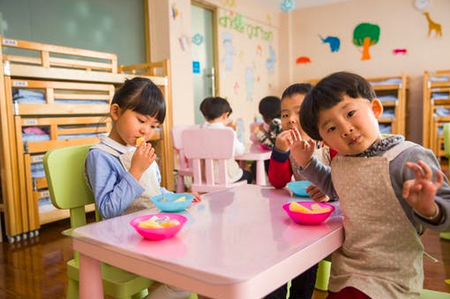
Enterprising Childcare?
Social Enterprise and Childcare
How to begin?
1. Do a further degree in a social policy related field?
2. Sit in the office or church and wait for them to come ?
3. Go out and speak to people and set up an enterprise
There is only one real way to start and that is to go and speak to people and make an assessment of needs, accommodation availability and the type of childcare provision to be established.
By establishing the project as a social enterprise, the people in the community could all use their skills and expertise, they are the ones with the innovation. You need at least one person with the confidence to help to make it work.
By creating a unique selling point (usp) and in using the passion and energy of the people, the social enterprise is born.
What makes a successful social enterprise in childcare?
- An entrepreneurial leader
- A team not a committee
- A business skill
- Non reliance on government
- Close relationship with local businesses
- Innovation
Consider three key aspects:
- Inspiration of the children
- Enterprise and innovation
- Philanthropy and social capital
Once an establishment has moved away from being dependent on receiving funding to determine its own future it is incredibly empowering and exciting. People can achieve and work together in a team and community endeavour.
Childcare or building children’s lives has a real future for everyone.
Childcare is often one of the first aspects that people are looking to find in their community and can begin from people’s needs, experience and expertise.
There are many aspects of childcare and Early Years that need to be taken into account and there are possibilities for a range of provision from ‘Stay and Play’s to registered daycare and Early Years Education.
As an outline the following areas are useful to think about at the start and can act as good discussion aspects to see if the project could be possible.
Type of provision
- Stay and Play – parent led with at least one professional at L3 or above in a relevant field. Volunteers or staff
- Creche – Usually delivered as provision for adults undergoing training. Children are supervised and the provision should be registered with all relevant requirements being met.
- Early Years Education and Daycare Provision – children from the age of 3 – 5 receive 15 hours of free childcare, which is paid for by the government to registered providers. Where parents are eligib
…there is also provision for 2 year olds for 15 hours, this is dependent on eligibility criteria ad at present is for the 20% most needy children and in September this rises to 40%.
- After School Clubs – This includes breakfast and Holiday clubs. These should also be established as registered providers and follow all the relevant requirements
- Informal groups and activities for children are usually arranged as part of an existing organisation, I.e scouts and church groups. These will then follow the policies for the overarching body and give the user/parent some understanding and confidence of the suitability of the provision.
Registered Childcare
The requirements are part of the Ofsted standards for Early Years and these are available from our childcare page here. ![]()
![]() An Ofsted Guide to Registration for Childcare is available here…
An Ofsted Guide to Registration for Childcare is available here…
To start considering a project the main areas to consider include:
- Accommodation and Premises
- Staffing/volunteers
- Resources
- Safeguarding
- Equality
- Curriculum and activities
- Outdoor spaces
- Management
Childcare can be one of the most fulfilling activities to be involved in and can provide a really good start in life for children and be a support for the organisation as a whole.
It is also an excellent way to bring new parents in to create a social network which will enhance well being and care and support as a sharing community.
There are a number of challenges in developing in the correct way, but there are also many people who can support and help and the benefits are well worth the effort.
